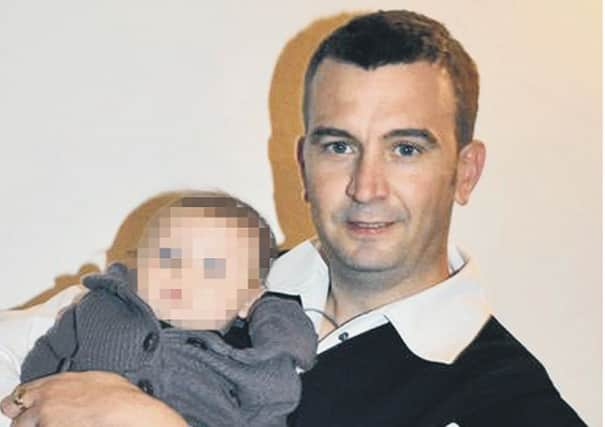Obituary: David Haines, British aid worker


The brutal and tragic death of David Haines has astounded many for its ferocious savagery. Haines was captured by Islamic State fighters in March 2013 when he was working for the French relief agency, ACTED (Agency for Technical Co-operation and Development), which helps civilians affected by wars, natural disasters and economic crises.
He and an Italian colleague, Federico Motka, were captured in Syria as they were driving towards the border with Turkey scouting locations for further refugee camps.
Advertisement
Hide AdAdvertisement
Hide AdClose to the Turkish border, they had been distributing water and erecting tents. One source recounts that they were stopped by two cars and ordered by gun-carrying masked men to get out of their vehicle. Haines and Motka were shoved into the boot of their captors’ car.
Haines spent the last 18 months of his life as a hostage. His family was instructed by the Foreign Office not to speak about the kidnap for fear of worsening an already fraught situation.
Unconfirmed reports suggest that Haines was badly treated but he did send a message to his family that he was being well-treated.
Motka was released last May, allegedly after the payment of a ransom. The British government would not enter into such negotiations.
Haines’ brother Michael spoke calmly from his home in Dundee over the weekend about his brother: “My brother worked in difficult times and places helping people experiencing great hardships.” Michael, clearly emotional but without bitterness towards the captors, continued: “David was most able under such conditions and remained happy and enthusiastic.” He concluded: “David’s life was about love for all men.”
David Cawthorne Haines was brought up in Perth, where he was educated at Perth Academy. In 1992 Haines married his childhood sweetheart, Louise. Their daughter, Bethany, is currently a pupil at Perth Academy.
A ceremony was held at the school after his death was announced and the Rev Jim Stewart led the tributes saying: “David was making a difference to people by bringing them hope and help at their most vulnerable time.”
Haines worked briefly for the Royal Mail but from 1988 he followed in his father’s footsteps and joined the RAF, spending 11 years training as an engineer and being trained in threat assessments. He also gained a considerable experience in negotiation, programme management, operations and security to the highest standards.
Advertisement
Hide AdAdvertisement
Hide AdIt was while serving with the UN in the Balkans in the late Nineties that Haines realised he wanted to dedicate his life to helping others and humanitarian causes.
Since 1998 he worked with several humanitarian agencies in Libya, South Sudan and the former Yugoslavia. He worked with a German charity and with them operated in Croatia, from 1999 to 2004. He played an invaluable part in various posts helping the ill and needy and working on rehousing projects after the civil war. His contribution to the rebuilding of that stricken country and its people was unflinching and considerable.
Two years ago Haines was appointed head of mission in Libya for Handicap International, and the following year he joined the Nonviolence Peaceforce and was posted to South Sudan. At both these appointments Haines’ experience in the security and administration of care for the sick and elderly made him indispensable to the good working of the operation. In Libya he was heavily involved in overseeing an international demining programme.
It was during his time in Croatia that he met his second wife, Dragana Prodanovic.
After his first marriage was dissolved, the couple married in 2010 with Haines resplendent in full highland dress and, so appropriate for a lad from the Fair City, wearing the Black Watch tartan. His friends and neighbours in Croatia, where Haines made his home, knew him as “Davey” and described him as a “fun Scot”.
Haines devoted his life to the care of others. His concern for those living under dire conditions was a central factor in his life. Haines, with his cheerful disposition and generous nature, helped those in need – regardless of race, creed or religion. His dignity, integrity and desire to do good was, for him, paramount.
David Haines is survived by his parents who live in Ayr, his second wife and a daughter from each marriage.